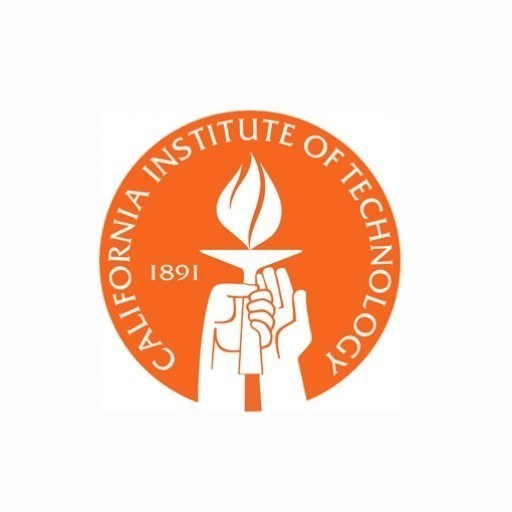Photos of university / #caltechedu
The Masters Degree Program in Aeronautics is a one year program that provides advanced training in the areas of aeronautics or aerospace beyond that covered in a four year undergraduate program. The program consists of a set of five core courses (see details below). There is no research requirement nor is a thesis required to obtain the degree.
Outcomes
A student graduating with an M.S. in Aeronautics will
- Be skilled in fluid mechanics, solid mechanics and mathematics, as applied to advanced study in aeronautics;
- Have an in-depth understanding of the foundations of analytical, computational and experimental techniques in this area;
- Be well qualified for a career in aerospace and related fields.
A program of study consists of courses totaling at least 138 units; of these, at least 84 units must be in the following subject areas:
- Fluid mechanics 27 units
- Solid/structural mechanics 27 units
- Mathematics or applied mathematics 27 units
- Aerospace engineering seminar 3 units
An additional 27 units are required as follows:
- a course in experimental techniques and laboratory work for the master’s degree in aeronautics, or
- a course in space engineering for the master’s degree in space engineering.
The remaining 27 units of electives are to be chosen from courses at Caltech that support the broader goals of the respective programs, subject to the approval of the option representative. Students must have a proposed program approved by their adviser prior to registration for the first term of work toward the degree.
Requirements
- Bachelor's degree in the related area
- Statement of Purpose
- Include payment of the application fee or submit a fee waiver request.
- Three letters of recommendation from individuals familiar with your academic and/or work performance are required for all applicants.
- Transcripts from all colleges or universities attended are required. Transcripts may be sent directly from the Registrar of the institution you attended or transcripts issued directly to the applicant, and so marked, are acceptable, and can be submitted online following the electronic submission process. If you attended Caltech as an undergraduate, you must request an official transcript from the Office of the Registrar. We cannot obtain one on your behalf.
- Attach a CV or resume
- TOEFL
The California Institute of Technology (Caltech) offers a range of financial aid options to support students pursuing degrees in aeronautics and related fields. Undergraduate students may apply for federal and state grants, scholarships, and work-study programs to offset the cost of their education. Caltech’s need-based financial aid program ensures that admitted students can attend regardless of their financial background by meeting 100% of demonstrated financial need through grants and scholarships that do not require repayment. Graduate students in aeronautics can leverage fellowships, research assistantships, and teaching assistantships, which often include tuition remission and stipends to support their research and academic pursuits. The institute also participates in external funding opportunities from government agencies such as NASA and the Department of Defense, which provide grants and fellowships for research in aeronautics and aerospace engineering. Additionally, Caltech's financial aid office offers personalized counseling to help students navigate application processes for various scholarships and external funding sources. International students are also considered for some scholarships and need-based aid, contingent upon specific eligibility criteria. Overall, Caltech's comprehensive financial aid program aims to minimize financial barriers, allowing talented students to focus on their studies and research in aeronautics without excessive concern about cost. The institution encourages prospective students to explore all available aid options early in the application process and provides detailed guidance to maximize financial support.
The California Institute of Technology offers a comprehensive program in Aeronautics that aims to prepare students for advanced careers in aerospace engineering and related fields. The program provides a rigorous curriculum combining principles of aerodynamics, propulsion, aircraft and spacecraft design, control systems, aeronautical structures, and fluid dynamics. Students have access to state-of-the-art laboratories and research facilities, enabling them to conduct experiments and develop practical skills in aeronautics and astronautics. The coursework emphasizes both theoretical understanding and hands-on experience, preparing graduates for innovation in aircraft and spacecraft development, research, and industry leadership.
The program is designed to foster multidisciplinary understanding, integrating aspects of mechanical engineering, electrical engineering, materials science, and computer science. Students are encouraged to engage in research projects, collaborate with faculty on cutting-edge aerospace investigations, and participate in internships or cooperative education programs with leading aerospace firms and government agencies like NASA. The curriculum is periodically updated to include emerging technologies such as unmanned aerial vehicles, space exploration systems, and sustainable aviation solutions.
Caltech's network supports students through seminars, workshops, and conferences, promoting interaction with industry pioneers and academic experts. Graduates of the program typically pursue careers in aerospace manufacturing, systems development, research and development, or continue their studies in graduate programs. The department emphasizes innovation, safety, and environmental sustainability, aiming to contribute solutions to complex aerospace challenges. The program thus provides a robust foundation for those interested in furthering technological advancements and understanding the science of flight and space exploration.









